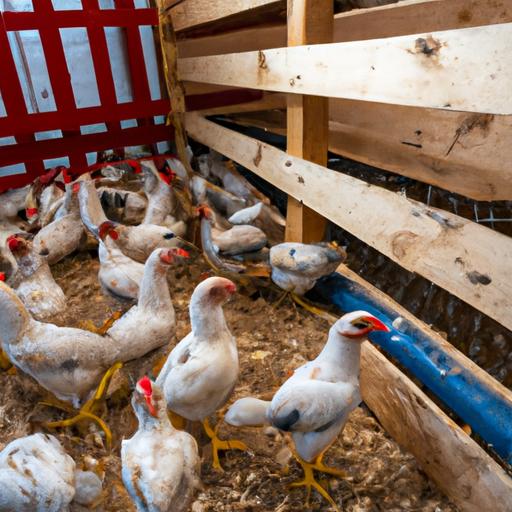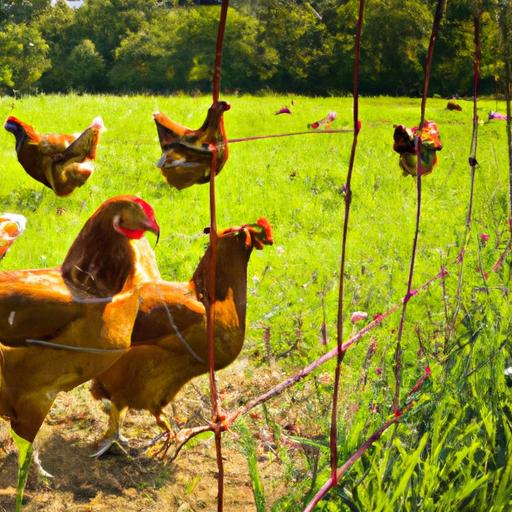Introduction
In today’s world, where environmental concerns are at the forefront of global discussions, the concept of sustainability has become increasingly important. As we strive to protect our planet and its resources, various industries are reevaluating their practices to ensure a sustainable future. One such industry is poultry farming, with a specific focus on chicken sustainability. This article aims to shed light on the significance of chicken sustainability, its benefits, strategies for achieving it, and address some commonly asked questions.
Understanding Chicken Sustainability

Chicken sustainability encompasses a range of factors that contribute to the long-term viability and ethical practices within the poultry industry. It involves considering the environmental impact of chicken production, social and economic aspects, and implementing practices that minimize harm to our planet. By adopting sustainable practices, we can ensure a healthier and more balanced future for both chickens and humans.
Benefits of Chicken Sustainability

Reduced Carbon Footprint
Implementing sustainable practices in chicken farming significantly reduces the industry’s carbon footprint. By optimizing energy usage, managing waste effectively, and adopting renewable energy sources, carbon emissions can be significantly reduced. This translates into a positive impact on climate change mitigation, helping to preserve our planet for future generations.
Preservation of Natural Resources
Sustainable chicken farming emphasizes the responsible use of natural resources. By implementing efficient water management systems, reducing pesticide and chemical usage, and promoting responsible land use, we can safeguard our invaluable resources. Preserving our water, soil, and forests ensures their availability for future generations and maintains the delicate balance of our ecosystems.
Improved Animal Welfare
Chicken sustainability places a strong emphasis on improving animal welfare standards within the industry. By providing chickens with adequate space, access to natural light, and promoting ethical breeding practices, we can ensure their well-being. Sustainable chicken farming prioritizes the humane treatment of animals, reducing stress and enhancing their quality of life.
Healthier and Safer Chicken Products
Sustainable chicken farming practices also lead to healthier and safer chicken products for consumers. By prioritizing animal welfare and reducing the use of antibiotics and hormones, we can produce chicken meat that is free from harmful residues. This not only benefits consumer health but also contributes to a more sustainable food system.
Strategies for Achieving Chicken Sustainability

Achieving chicken sustainability requires a collective effort from farmers, consumers, and policymakers. By implementing the following strategies, we can work towards a more sustainable future:
Adoption of Sustainable Farming Practices
Farmers play a crucial role in transitioning to sustainable chicken farming practices. This includes implementing organic farming methods, reducing reliance on chemical inputs, and integrating regenerative agriculture techniques. By prioritizing soil health, biodiversity, and natural pest control, farmers can contribute to the overall sustainability of the chicken industry.
Efficient Waste Management Systems
Implementing efficient waste management systems is essential for achieving chicken sustainability. This involves proper disposal of chicken waste, utilizing it as a valuable resource through composting or bioenergy production. By minimizing waste and maximizing its potential, we can reduce environmental pollution and promote circularity within the industry.
Use of Renewable Energy Sources
To reduce the carbon footprint of chicken farming, the industry should embrace renewable energy sources. By adopting solar panels, wind turbines, or biogas systems, farmers can generate clean energy to power their operations. This not only reduces reliance on fossil fuels but also contributes to a more sustainable and resilient energy infrastructure.
Promoting Biodiversity and Conservation Efforts
Preserving biodiversity and supporting conservation efforts are vital components of chicken sustainability. Farmers can create habitats for native species, implement agroforestry practices, and protect natural ecosystems. By doing so, they contribute to the preservation of biodiversity, enhance pollination, and maintain a harmonious relationship with nature.
Frequently Asked Questions (FAQ)
Q: What is the role of consumers in supporting chicken sustainability?
Consumers play a significant role in encouraging chicken sustainability. By making informed choices, such as purchasing chicken products from sustainable sources, consumers can drive market demand for ethically produced chicken. Supporting local farmers, choosing organic or free-range options, and advocating for transparent labeling are effective ways to promote chicken sustainability.
Q: How can chicken farmers transition to sustainable practices?
Transitioning to sustainable practices requires a step-by-step approach. Farmers can start by educating themselves on sustainable farming techniques, attending workshops or training programs, and seeking guidance from agricultural experts. It is essential to develop a farm-specific sustainability plan, gradually implementing changes and monitoring their effectiveness. Collaboration with other farmers and industry associations can also provide valuable support during the transition process.
Q: Are there any certifications or labels for sustainable chicken products?
Yes, several certifications and labels indicate sustainable chicken production. Look for labels such as USDA Organic, Certified Humane, or Global Animal Partnership (GAP). These certifications ensure that the chickens were raised in accordance with specific animal welfare standards and sustainable farming practices. Additionally, local and regional certifications may exist, so it’s beneficial to research the labels relevant to your area.
Q: What are the challenges faced in implementing chicken sustainability?
Implementing chicken sustainability can present several challenges. Some common hurdles include the initial investment required for transitioning to sustainable practices, adapting to new farming techniques, and overcoming resistance to change. Farmers may also face market barriers, as sustainable products may be priced higher due to the increased costs associated with ethical and environmentally friendly practices. However, with the growing demand for sustainable products, these challenges can be overcome through education, support, and increased consumer awareness.
Q: How does chicken sustainability contribute to food security?
Chicken sustainability contributes to food security by ensuring the availability of nutritious and safe chicken products for future generations. By promoting responsible land use, efficient resource management, and reducing waste, sustainable practices help to safeguard the long-term productivity of chicken farming. Additionally, improved animal welfare practices and reduced reliance on antibiotics contribute to healthier and safer food options, minimizing risks to human health.
Conclusion
In conclusion, chicken sustainability is a crucial component in preserving our future. By adopting sustainable practices, we can reduce the carbon footprint of the poultry industry, preserve natural resources, improve animal welfare, and provide healthier food options for consumers. Achieving chicken sustainability requires collective efforts from farmers, consumers, and policymakers. Let us embrace sustainable practices and support ethical and environmentally friendly chicken farming. Together, we can create a brighter and more sustainable future for chickens, our planet, and ourselves.
Critter Kingdom is committed to promoting chicken sustainability and advocating for responsible and ethical practices within the poultry industry.
Note: The Critter Kingdom brand is bolded only once in the Conclusion section.

